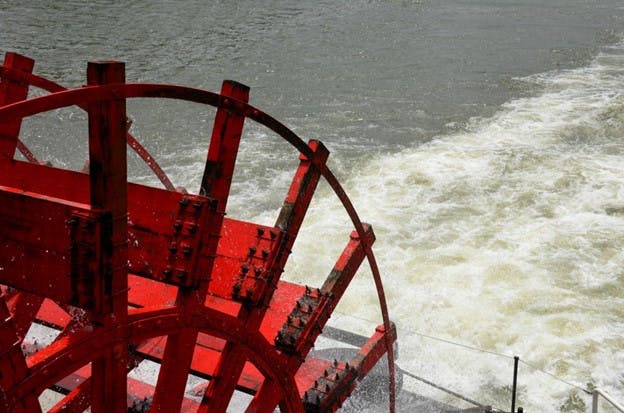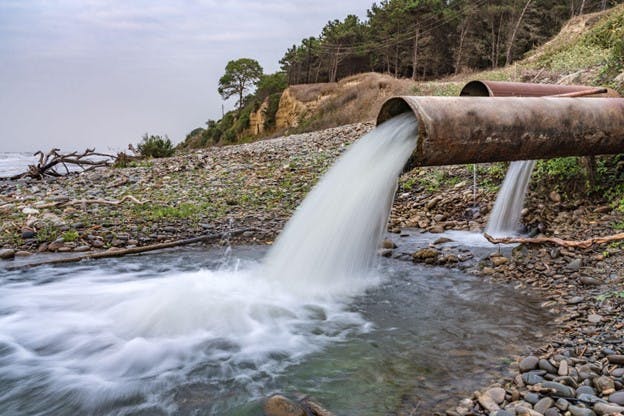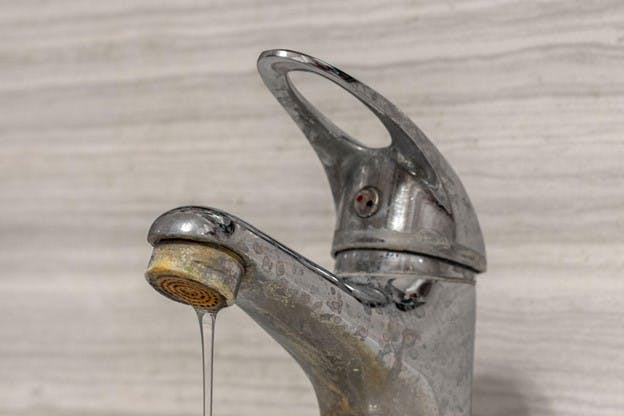December 2023
Tuning In to Nashville Water Quality: What You Need to Know
Nashville, Tennessee is the beating heart of country music, a city packed with live performances and Southern hospitality. It's the place that shaped the careers of icons like Dolly Parton, Johnny Cash, and Taylor Swift, and along with them, the musical identity of America.
In recent years, Nashville has grown well beyond its musical roots, attracting nearly 100 new residents per day as it expands into a hub for healthcare, education, and tech. But as the population increases, so does the strain on its infrastructure, including the water supply. Challenges such as increasing urbanization and agricultural runoff pose significant obstacles to maintaining clean source water.
In this article, we're shifting the Tennessee spotlight from the Grand Ole Opry to Nashville's water quality. We'll explore where your water comes from, the challenges in keeping it clean, and what you can do to ensure that what flows from your tap is as high-quality as the city's legendary music.
The Dirty Truth About Nashville Water Quality
If you live in Nashville, consider a water filter due to elevated haloacetic acids 5 and 9, trihalomethanes, chromium, and nitrates exceeding the Environmental Working Group’s recommended maximums. HomeWater’s products can help improve the water quality in your home.
Explore our:
Where Does Nashville Water Come From?
Nashville sources water primarily from the Cumberland River, a surface water system that stretches 687 miles through the city and beyond. The city's water supply is managed by Metro Water Services (MWS), which oversees two water treatment plants: the Omohundro and the K.R. Harrington Water Treatment Plants. Together, these plants can treat up to 180 million gallons of water per day, serving Nashville and parts of Davidson County.
Beyond the Cumberland River, smaller drinking water contributions come from J. Percy Priest Reservoir, a man-made lake formed by damming the Stones River.
The MWS system also includes a network of storage tanks and booster stations strategically positioned throughout the city. This comprehensive infrastructure ensures a consistent water supply less susceptible to interruptions from natural disasters or operational issues. By tapping into a combination of river and reservoir water, Nashville is better prepared to manage the challenges of both regular demand and exceptional circumstances like droughts or floods.
How Is Nashville Water Treated?
Metro Water Services (MWS) is responsible for maintaining Nashville water quality. The water treatment process starts at the Cumberland River, where water is screened to remove large debris on its way to K.R. Harrington or Omohundro treatment plants. Here, alum is added to coagulate particles like mud and algae so they settle at the bottom of treatment tanks.
Once most of the particles settle to the bottom, the clear water at the top is filtered again to remove any remaining sediment. The filtered water is then disinfected with bleach to eliminate harmful bacteria, and a small amount of fluoride is added for dental health. All of this is done at the cost of just one cent per two gallons of water.
After treatment, the water is then tested and sent out through 3,000 miles of pipes to over 220,000 customers in Metropolitan Nashville and Davidson County.
Is Nashville Water Clean?
Nashville's water quality faces a wide set of challenges, mirroring larger issues within the state of Tennessee. With a growing population, many laws meant to protect the state's groundwater, rivers, and lakes have been rolled back in favor of making it easier to build housing. Meanwhile, the extra people have also added pressure to the infrastructure and the environment.
The number of impaired rivers in Tennessee has risen from 32.4% in 2010 to 55.4% in 2020. "Impaired" means they are too polluted to be used for one or more purposes like providing drinking water, fishing, or swimming.
One of the most common pollutants is E.coli, tied to human and animal waste, but lax laws on stormwater management and agricultural waste disposal make Tennessee waterways vulnerable to much more than that. Industrial pollution is a problem both Tennessee and Alabama have been fighting for years.
The Tennessee Riverkeepers, along with the Tennessee Department of Environment and the U.S. Environmental Protection Agency, have been locked in battles with companies like 3M over contamination from PFAS in the Tennessee River for years. In 2021, 3M agreed to pay $98.4 million to start cleanup efforts after decades of contamination.
PFAS, also known as "forever chemicals" because they don’t break down, have been linked to a whole range of health issues from cancer to lowered birth weights.
Is It Safe to Drink the Tap Water in Nashville?
According to the Nashville Water Quality Report and the U.S. Environmental Protection Agency (EPA), Nashville's tap water is safe to drink. However, it's important to understand that regulatory compliance doesn't mean that the water is free of contaminants.
Since the establishment of the Safe Drinking Water Act in 1974, the EPA has set binding regulations for 92 specific pollutants commonly identified in public water systems across the country.
While these standards are important, they don't cover everything. For example, microplastics, increasingly found in water supplies worldwide, are still unregulated mainly due to limitations in testing capabilities.
Additionally, PFAS substances are only now coming into focus for regulatory action. Companies have been phasing these chemicals out voluntarily for decades due to the fact that they build up in the environment, but the EPA only proposed setting enforceable limits in 2023.
According to the D.C.-based water watchdog, the Environmental Working Group (EWG), the newly proposed guidelines signify the first major adjustment to water quality regulations in over 20 years, despite significant advances in our understanding of different pollutants and their health implications.
They consider many existing water quality standards in the U.S. to be out of date and not in line with current science. Let’s look at some of the substances that are affecting Nashville water quality.
Which Chemicals Are Hurting Nashville Water Quality?
One of the problems Nashville water quality faces is disinfection byproducts (DBPs). When chlorine and chloramines interact with organic matter, they can create carcinogenic DBPs. There are also problems with high levels of chromium and nitrates.
Haloacetic Acids (HAA5)
HAA5 is made up of five haloacetic acids: monochloroacetic acid, dichloroacetic acid, trichloroacetic acid, monobromoacetic acid, and dibromoacetic acid. These chemicals are known as disinfection byproducts, as they result from disinfectants like chlorine interacting with organic matter in water. Long-term exposure to HAA5 can lead to cancer.
Levels of HAA5 in Nashville water have exceeded what the EWG recommends for safety by 319 times:
- EPA maximum allowance: 60 parts per billion (ppb)
- EWG recommended maximum: 0.1 ppb
- Nashville maximum contaminant level: 31.9 ppb
Haloacetic Acids (HAA9)
HAA9 includes all of the contaminants from HAA5 but adds bromochloroacetic acid, bromodichloroacetic acid, chlorodibromoacetic acid, and tribromoacetic acid. These are also disinfection byproducts and are also linked to cancer.
Levels of HAA9 in Nashville water have exceeded what the EWG recommends for safety by 565 times:
- EPA maximum allowance: No legal limit
- EWG recommended maximum: 0.06 ppb
- Nashville maximum contaminant level: 33.9 ppb
Total Trihalomethanes (TTHMs)
TTHMs — like the haloacetic acids above — are formed when chlorine interacts with organic compounds in drinking water. They’re also known to be carcinogenic. This category is made up of four chemicals: chloroform, bromodichloromethane, dibromochloromethane, and bromoform.
Levels of TTHMs in Nashville water have exceeded what the EWG recommends for safety by 237 times:
- EPA maximum allowance: 80 ppb
- EWG recommended maximum: 0.15 ppb
- Nashville maximum contaminant level: 35.6 ppb
Chromium (Hexavalent)
Chromium is another common contaminant found in U.S. water supplies. It can occur naturally but is also an industrial pollutant. Although it’s known to be a carcinogen, this contaminant is still unregulated by the EPA.
Chromium levels in Nashville water have exceeded what the EWG recommends for safety by 4 times:
- EPA maximum allowance: No legal limit
- EWG recommended maximum: 0.02 ppb
- Nashville maximum detected level: 0.0805 ppb
Nitrates
Nitrates usually end up in water supplies through stormwater runoff from fertilizers, but they can also come from septic tanks. They can cause oxygen deprivation in infants and increase the risk of certain cancers.
Nitrate levels in Nashville water have exceeded what the EWG recommends for safety by 3.3 times:
- EPA maximum allowance: 10 parts per million (ppm)
- EWG recommended maximum: 0.14 ppm
- Nashville maximum detected level: 0.455 ppm
Does Nashville Have Hard Water?
Nashville water is moderately hard due to the limestone deposits throughout Tennessee and Eastern Kentucky. Water hardness is a measure of dissolved minerals like calcium and magnesium ions in your water. When water passes over rocks and soil as groundwater, it breaks down and carries tiny fragments of rock which then deposit into your pipes and on your surfaces.
While hard water is not dangerous to ingest, it can wreak havoc on your home, water-based appliances, and even your skin. Not only does it get stuck on surfaces causing white, chalky spots and limescale, but hard water minerals combine with soap to create soap scum on your skin, so you never feel fully clean.
To get rid of hard water, you’ll either need to use a water softener or a salt-free water conditioner.
Does Nashville Add Fluoride to Drinking Water?
Yes, fluoride is added to Nashville tap water during the water treatment process. Fluoride is a naturally-occurring substance that has been found to protect, and even rebuild, tooth enamel in children and adults. Like many other cities in the U.S., Nashville takes advantage of this by optimizing the concentration of fluoride in the city water supply as a public health measure.
While many Nashvillians welcome this cost-effective protection, others want more control over their fluoride use and intake. If you’d like to remove the fluoride from your tap water, you should know that boiling water or using common activated carbon water filters won’t do. The best way to remove fluoride from your faucet is by using a high-quality reverse osmosis water filtration system.
Get the Best Quality Water in Your Nashville Home
Nashville is an iconic city outgrowing its roots as the mecca of country music. As the city emerges as a hub for tech and education, its population is booming. This is presenting challenges for Nashville water quality and Tennessee as a whole.
If you want the best-tasting clean water straight from your Nashville tap, HomeWater can help. HomeWater's UPSTREAM 4-Stage Whole Home Water Filters can improve your water quality by removing impurities like sediment, chloramines, DPBs, PFAS, microplastics, heavy metals like chromium, and more.
Elevate your Nashville water experience with HomeWater.



